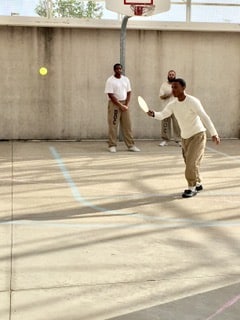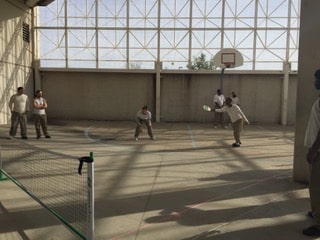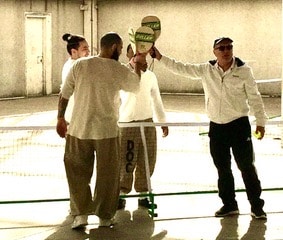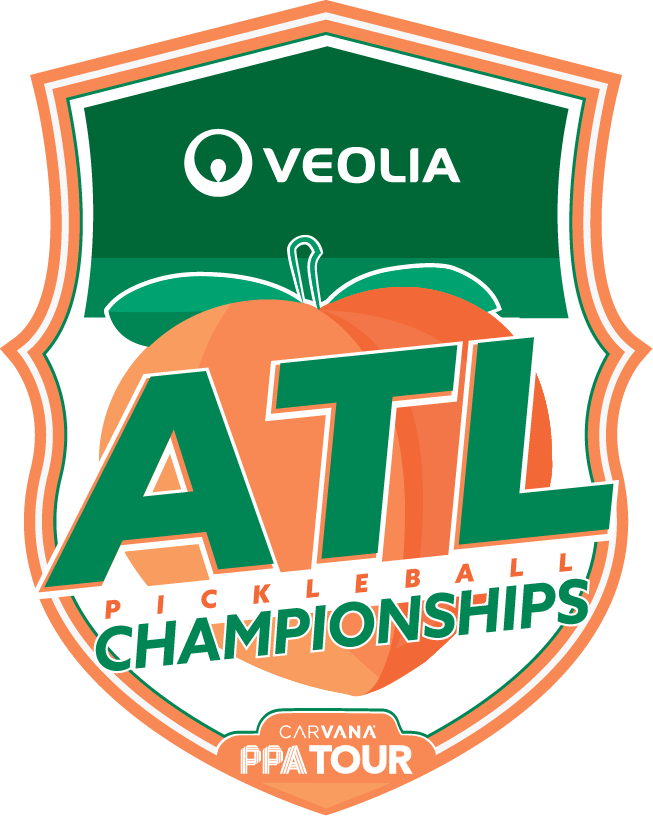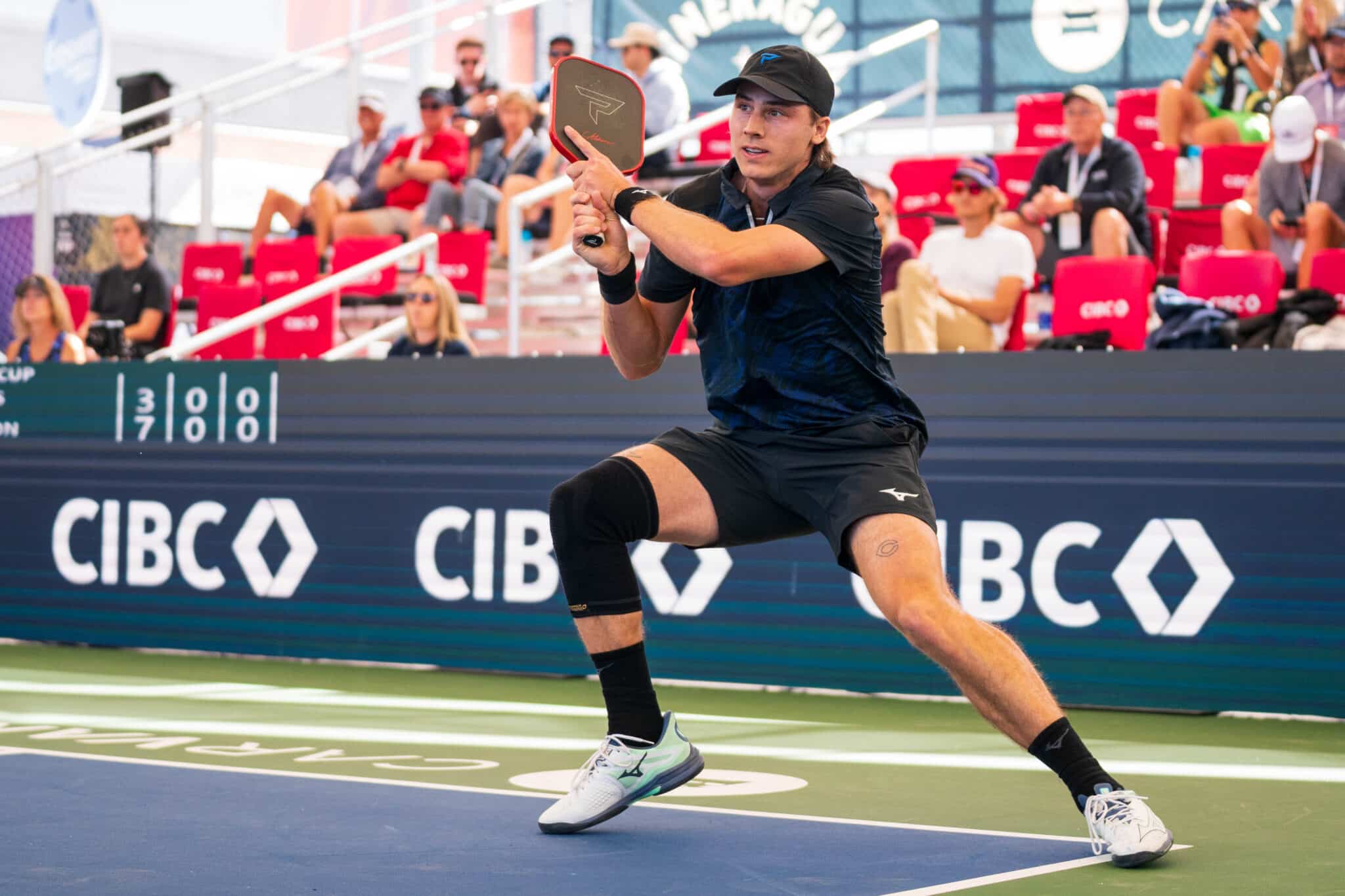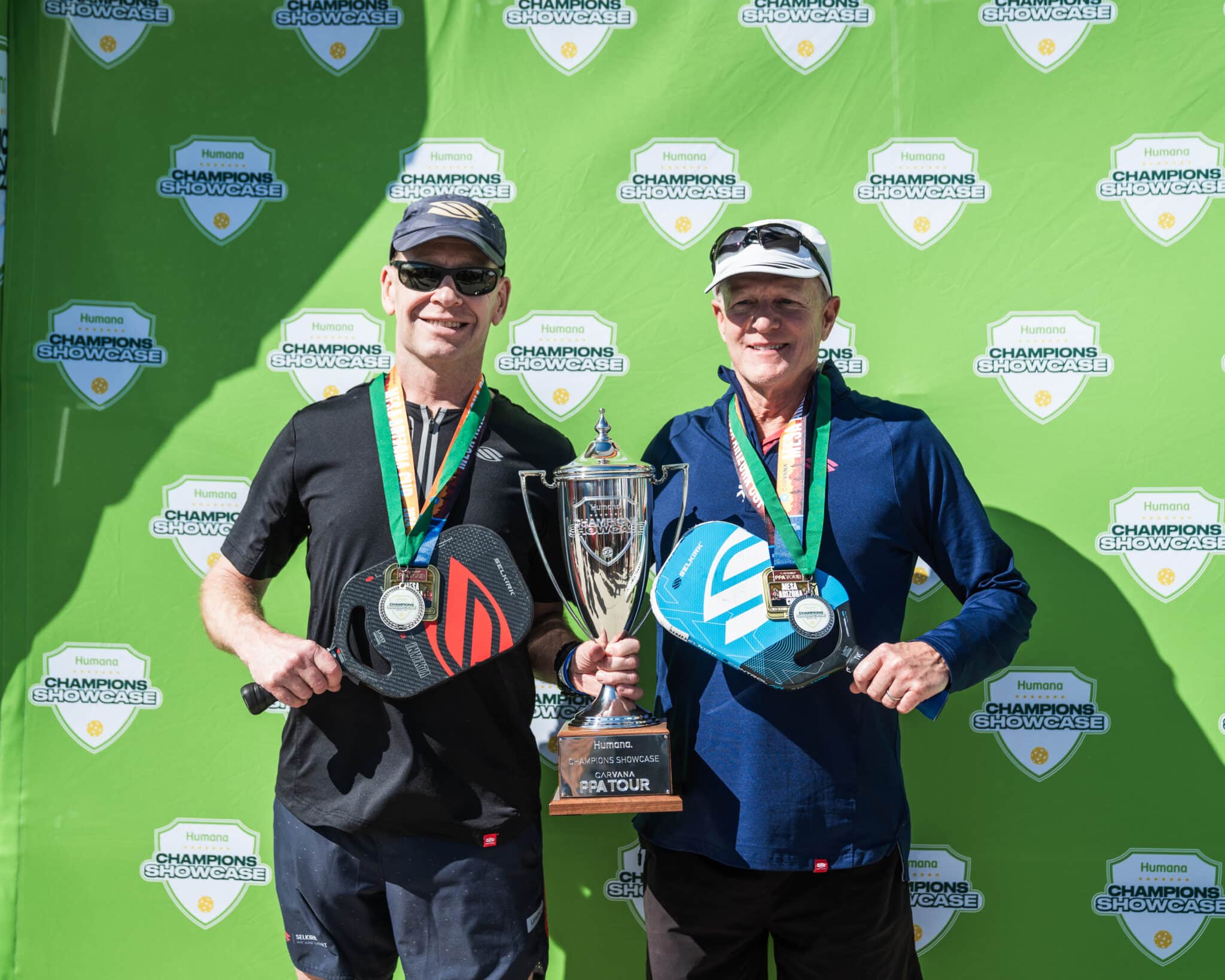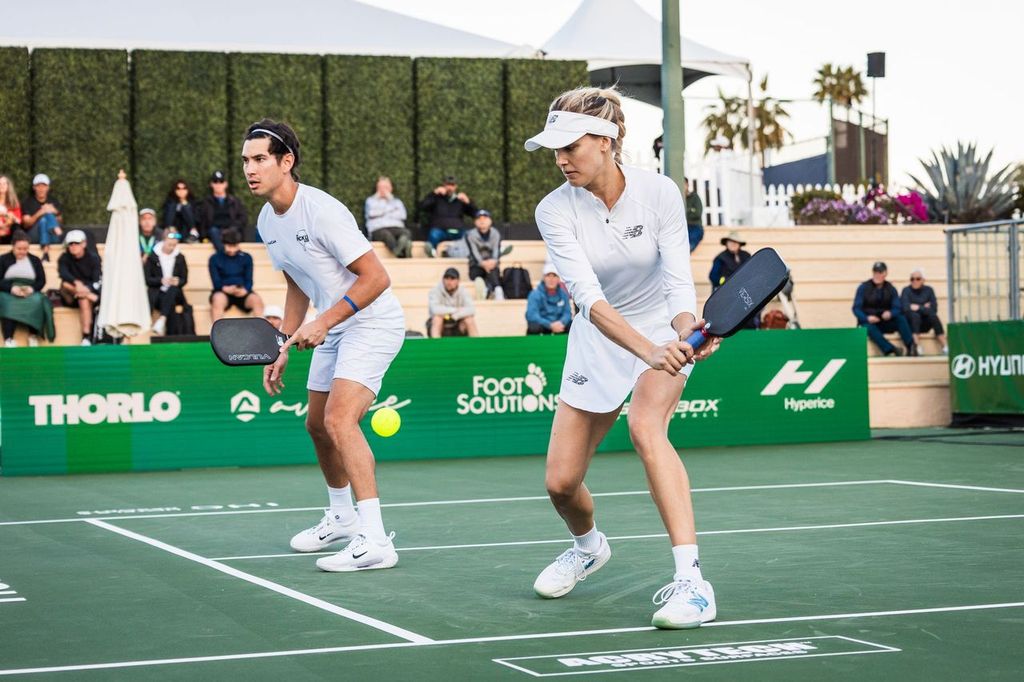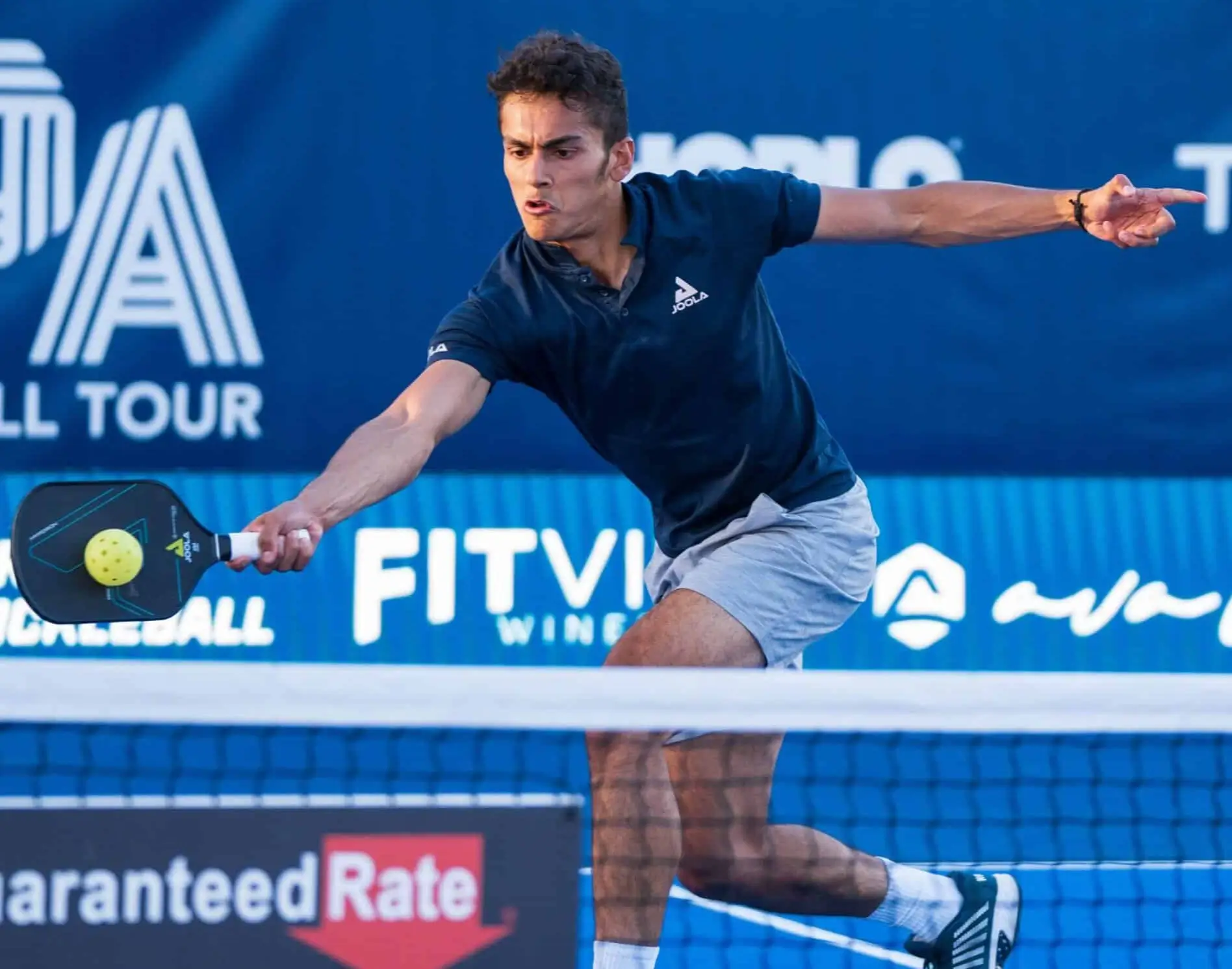Pickleball in Prisons: Giving Back In Unlikely Ways
| July 11, 2023
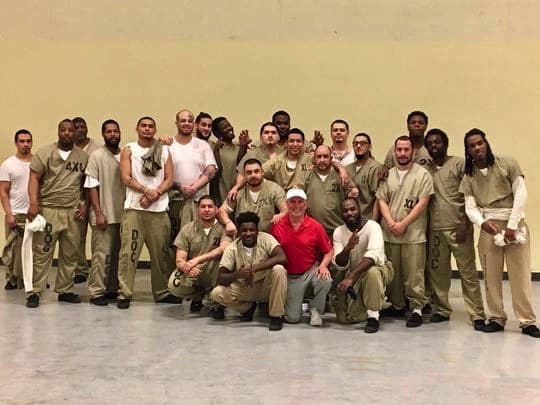
Roger BelAir has spent a good portion of his life around money.
A former vice president in banking and an investment broker, BelAir knows what it takes to save money and make money. Surprisingly, however, the most-rewarding thing he says he’s ever done doesn’t make him any money or help save him a buck. In fact, it’s a huge financial drain.
“And I’m a financial guy,” BelAir said. “It goes against my DNA to think any other way.”
But that’s exactly what BelAir has done – changed his DNA. From banker to investments to writer and professional speaker, BelAir now finds himself in the role of a pickleball advocate and coach in the unlikeliest of places – correctional institutions. From Rikers Island to Cook County Jail, BelAir has traveled the country teaching pickleball to prisoners.
“It’s fun and rewarding,” he said. “I’ve never done anything so satisfying in my life.”
He continued, “there are people who come from the perspective that there shouldn’t be fun or games in prison and say that they are there to be punished. I understand both sides, but even if you don’t want them to have joy, the guards use force 15-20 times per day at Rikers. If you could cut that in half, isn’t that better for everyone?”
Getting to play pickleball in prison is a reward for many of the inmates and co-existing on the court with someone of a different color, age, or even someone in another gang, is a necessity.
Anyone who’s played pickleball can certainly relate. We’ve all shared the court with someone of a different skill, age, or background. You have to figure things out together if you want to win and that figuring-things-out part is all the fun.
“You have prisoners who are enemies and, all of a sudden, they are playing as a team and laughing together,” BelAir said. “You have groups of people who won’t talk to each other, but then voluntarily get involved playing pickleball on the same court. Guys in different gangs giving each other a high five. There’s something positive that comes out of each hitting session. I had no idea that something like pickleball could be so powerful until I saw the dividends for myself.”
BelAir said he got the idea to visit the Cook County Jail in Chicago back in 2017 after watching a “60 Minutes” segment. He said basketball, which can be defined as an aggressive, contact sport that rewards the bigger, stronger players, was the most popular sport in jails and prisons. This made him think that pickleball could be a great alternative activity for inmates.
After sending Cook County Jail a letter and never expecting to get a reply back, BelAir was surprised when he did. Within a few weeks, he was inside the jail and working with the prisoners. That was the first time he had ever been inside a jail.
“Since I’d been in professional speaking before I found pickleball, it was natural for me to teach and speak with authority,” he said.
Because of COVID, BelAir said it’s been difficult getting to all the institutions around the country that he wants to teach at, but he said he hears from people all over who want to do more of what he’s doing because of how rewarding the experience has been.
His story has been told in USA Today and many other newspapers and websites all over the country. He has received donations of nets, balls, and paddles from Pickleball Central, a retailer of pickleball equipment, to help support the cause. BelAir also noted that he’s heard from prisons from Colorado to New Hampshire, either expressing gratitude for a visit or with a request to visit them in turn.
That means that there are plenty of opportunities to help and be rewarded while teaching this game. There’s just something special about pickleball. It’s one of those things that brings people together regardless of who they are and really, what’s better than that? The world needs more pickleball.
“Well, about 95 percent of people who are incarcerated are eventually released back into society,” BelAir said. “They are going to be in our malls, parks, and places where our kids are. If we can make life better for them and make them better people on the inside, it’s going to make it safer for all of us once they’re on the outside. They are going to be our neighbors tomorrow.”

